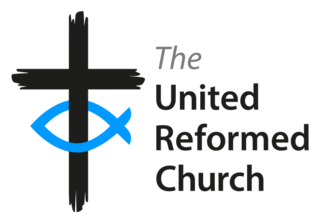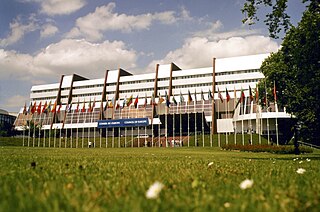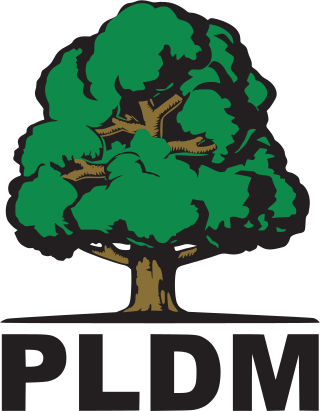
The European Committee of the Regions (CoR) is the European Union's (EU) assembly of local and regional representatives that provides sub-national authorities with a direct voice within the EU's institutional framework.

Elections in Sweden are held once every four years. At the highest level, all 349 members of Riksdag, the national parliament of Sweden, are elected in general elections. Elections to the 20 county councils and 290 municipal assemblies – all using almost the same electoral system – are held concurrently with the legislative elections on the second Sunday in September.

The United Reformed Church (URC) is a Protestant Christian church in the United Kingdom. As of 2024 it had approximately 44,000 members in around 1,250 congregations with 334 stipendiary ministers.

The United Nations Institute for Training and Research (UNITAR) is a dedicated training arm of the United Nations system. UNITAR provides training and capacity development activities to assist mainly developing countries with special attention to Least Developed Countries (LDCs), Small Island Developing States (SIDS) and other groups and communities who are most vulnerable, including those in conflict situations.

The Consumer Federation of America (CFA) is a non-profit organization founded in 1968 to advance consumer interests through research, education and advocacy.

The Erasmus Student Network (ESN) is a Europe-wide student organisation.
The United Nations General Assembly declared 2008 as the International Year of Planet Earth to increase awareness of the importance of Earth sciences for the advancement of sustainable development. UNESCO was designated as the lead agency. The Year's activities spanned the three years 2006–2009.

New Local, formerly known as the New Local Government Network, is an independent British think tank and local government network. Founded in 1996, it is based in London, and brings together over 60 councils and other organisations aiming to transform public services and unlock community power.

The Council of European Municipalities and Regions (CEMR) is the largest organisation of local and regional governments in Europe. Its members are 60 national associations of towns, municipalities and regions from 41 countries that are part of the Council of Europe. Together these associations represent about 130,000 local and regional authorities.

The Congress of Local and Regional Authorities is the pan-European political assembly representing local and regional authorities from the forty-six member states of the Council of Europe. Its role is to promote local and regional democracy, improve local and regional governance and strengthen authorities' self-government, according to the principles laid down in the European Charter of Local Self-Government. It is made up of two chambers, the Chamber of Local Authorities and the Chamber of Regions and holds its plenary sessions twice a year at the Palace of Europe in Strasbourg, where its permanent Secretariat is located.

The International Federation of Medical Students' Associations (IFMSA) is a non-governmental organization representing associations of medical students. It was founded in May 1951 and currently maintains 133 member organizations from 123 countries around.

The Liberal Democratic Party of Moldova is a conservative political party in Moldova. The party is led by Tudor Deliu. Until 2016, PLDM was led by Vlad Filat, who was Prime Minister of Moldova from 2009 to 2013, in two cabinets. Immediately after the 2014 parliamentary elections, with 21 seats in the Moldovan Parliament, PLDM was the largest of the three democratic pro-European parliamentary parties.
The Russian LGBT Network is a non-governmental LGBT rights organization working for the social acceptance of and protection of the rights of LGBT people in Russia. Founded in 2006, it was reformed into the first Russian inter-regional LGBT rights organization on October 19, 2008. The organization is a member of the International Lesbian and Gay Association (ILGA) and is led by Russian LGBT rights activist Igor Kochetkov.
Design for All in the context of information and communications technology (ICT) is the conscious and systematic effort to proactively apply principles, methods and tools to promote universal design in computer-related technologies, including Internet-based technologies, thus avoiding the need for a posteriori adaptations, or specialised design.

The European Conservatives and Reformists Party, formerly known as Alliance of European Conservatives and Reformists and Alliance of Conservatives and Reformists in Europe, is a conservative, soft Eurosceptic European political party with a main focus on reforming the European Union (EU) on the basis of Eurorealism, as opposed to total rejection of the EU (anti-EU-ism).
The Centre for European Volunteering (CEV), established in 1992, is the European network of over 60 organisations dedicated to the promotion of, and support to, volunteers and volunteering in Europe at European, national or regional level. Through the network, CEV works to ensure that: the value of quality volunteering as an expression of Solidarity and European values is understood, supported and celebrated; policies & programmes, together with the European social environment, inspires, encourages and supports quality European Volunteering; Individuals and organisations that are active in the volunteering and civil society sphere share, learn and are inspired from one another in the framework of CEV. In this way CEV reaches out to the many thousands of volunteers and volunteer organisations in Europe as a source of support bringing the European dimension to their work.

The politics of France take place within the framework of a semi-presidential system determined by the French Constitution of the French Fifth Republic. The nation declares itself to be an "indivisible, secular, democratic, and social Republic". The constitution provides for a separation of powers and proclaims France's "attachment to the Rights of Man and the principles of National Sovereignty as defined by the Declaration of 1789".

The United Nations Office for Disaster Risk Reduction (UNDRR) was created in December 1999 to ensure the implementation of the International Strategy for Disaster Reduction.

Ursula Groden-Kranich is a German politician of the Christian Democratic Union of Germany (CDU) who served as a member of the Bundestag from 2013 to 2021, representing the constituency of Mainz. She is also a member of Mainz City Council and was the local representative for Mainz-Hechtsheim between 2004 and 2014.
The World Forum for Democracy is a gathering each November in Strasbourg, France to debate the complex challenges facing democracies today and foster democratic innovation. The Forum is hosted by the Council of Europe and brings together members of civil society, political leaders and representatives of business, academia, media and professional groups. Past editions have revolved around themes such as "Bridging the gap: democracy between old models and new realities", "Re-wiring Democracy: connecting institutions and citizens in the digital age" and "From participation to influence: can youth revitalise democracy?".














